This post may contain affiliate links, which means I’ll receive a commission if you purchase through my links, at no extra cost to you. Please read full disclosure here.
As the calendar turns a new leaf, people around the world come together to celebrate the arrival of a fresh beginning. As we usher in the New Year, expressing warm wishes is a tradition that spans across cultures. If you’re looking to extend your greetings to someone in Korean, the phrase “Happy New Year” can be conveyed in several ways, depending on the level of formality.
Let’s explore the different expressions to ensure your New Year wishes are just right.
Table of Contents
Formal “Happy New Year” in Korean
To say “Happy New Year” in Korean, in formal settings or when addressing elders, superiors, or those you want to show deep respect to, the phrase “새해 복 많이 받으십시오” (pronounced “sae-hae bok mani ba-deu-sip-si-o”) is commonly used. This phrase conveys a sense of formality and politeness, making it suitable for professional or respectful occasions.
Here’s a breakdown of each word in the phrase “새해 복 많이 받으십시오” (saehae bok mani badeusipsio):
- 새해 (saehae) means “New Year.”
- 복 (bok) translates to “luck” or “fortune.”
- 많이 (mani) means “a lot” or “many.”
- 받으십시오 (badeusipsio) is a formal form of the verb 받다 (batda) which means “to receive” or “to get.”
So, when you say “새해 복 많이 받으십시오,” you’re essentially expressing the wish for the person to receive a lot of luck or fortune in the New Year.
Polite “Happy New Year” in Korean
If you want to maintain politeness without being overly formal, the phrase “새해 복 많이 받으세요” (pronounced “sae-hae bok mani ba-deu-se-yo”) is appropriate. This is a versatile expression suitable for various social situations where a moderate level of formality is required.
- 받으세요 (badeuseyo) is a polite form of the verb 받다 (batda).
Informal “Happy New Year” in Korean
When speaking casually with friends, family, peers of a similar age, people younger than you, or someone you are on friendly terms with, you can use the phrase “새해 복 많이 받아” (pronounced “sae-hae bok mani ba-da”). This expression is friendly and shows warmth, making it ideal for casual or informal settings.
- 받아 (bada) is an informal form of the verb 받다 (batda).
Recap!
- Formal (Respectful):
- 새해 복 많이 받으십시오 (saehae bok mani badeusipsio)
- Polite (Formal but less formal than the first option):
- 새해 복 많이 받으세요 (saehae bok mani badeuseyo)
- Informal (Casual, used with close friends, family or people younger than you):
- 새해 복 많이 받아! (saehae bok mani bada)
Wishing someone a “Happy New Year” in Korean involves choosing the appropriate level of formality based on the context and your relationship with the person. Whether you opt for a formal, polite, or informal expression, the sentiment behind the words remains the same – a sincere wish for a prosperous and joyful year ahead.
As you engage in cultural exchanges and celebrations, don’t hesitate to use these phrases to share the spirit of the New Year with your Korean friends and acquaintances.
May your coming year be filled with happiness, success, and new opportunities! 새해 복 많이 받으세요!









